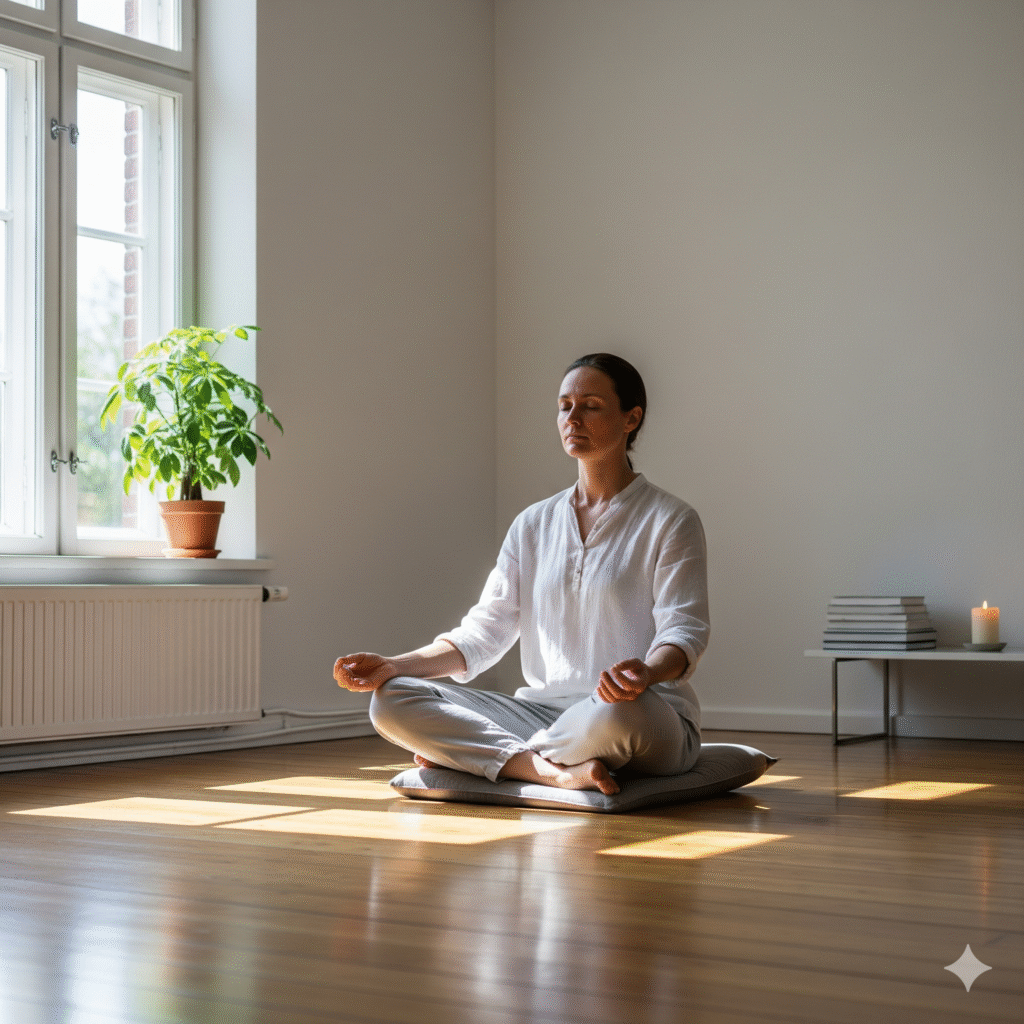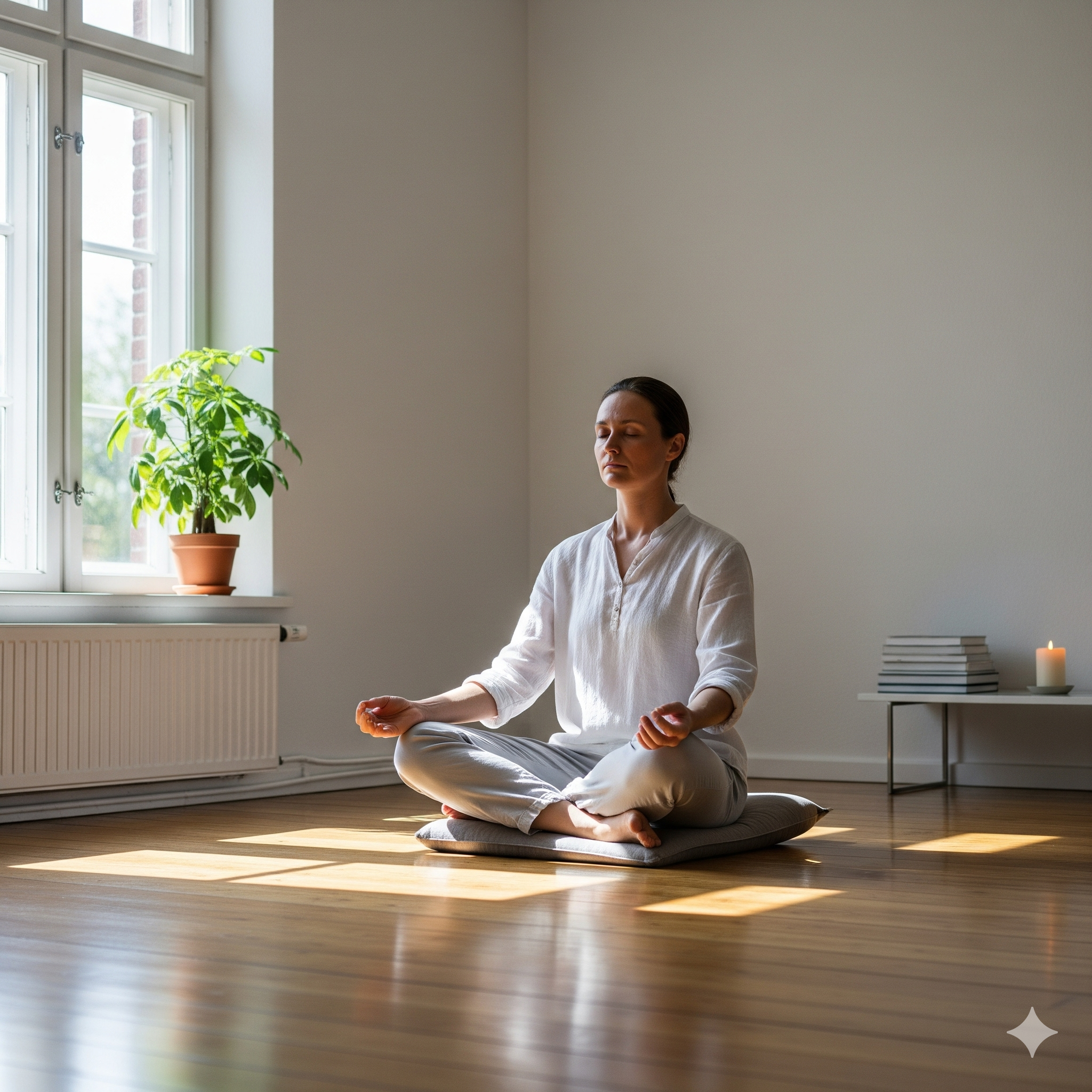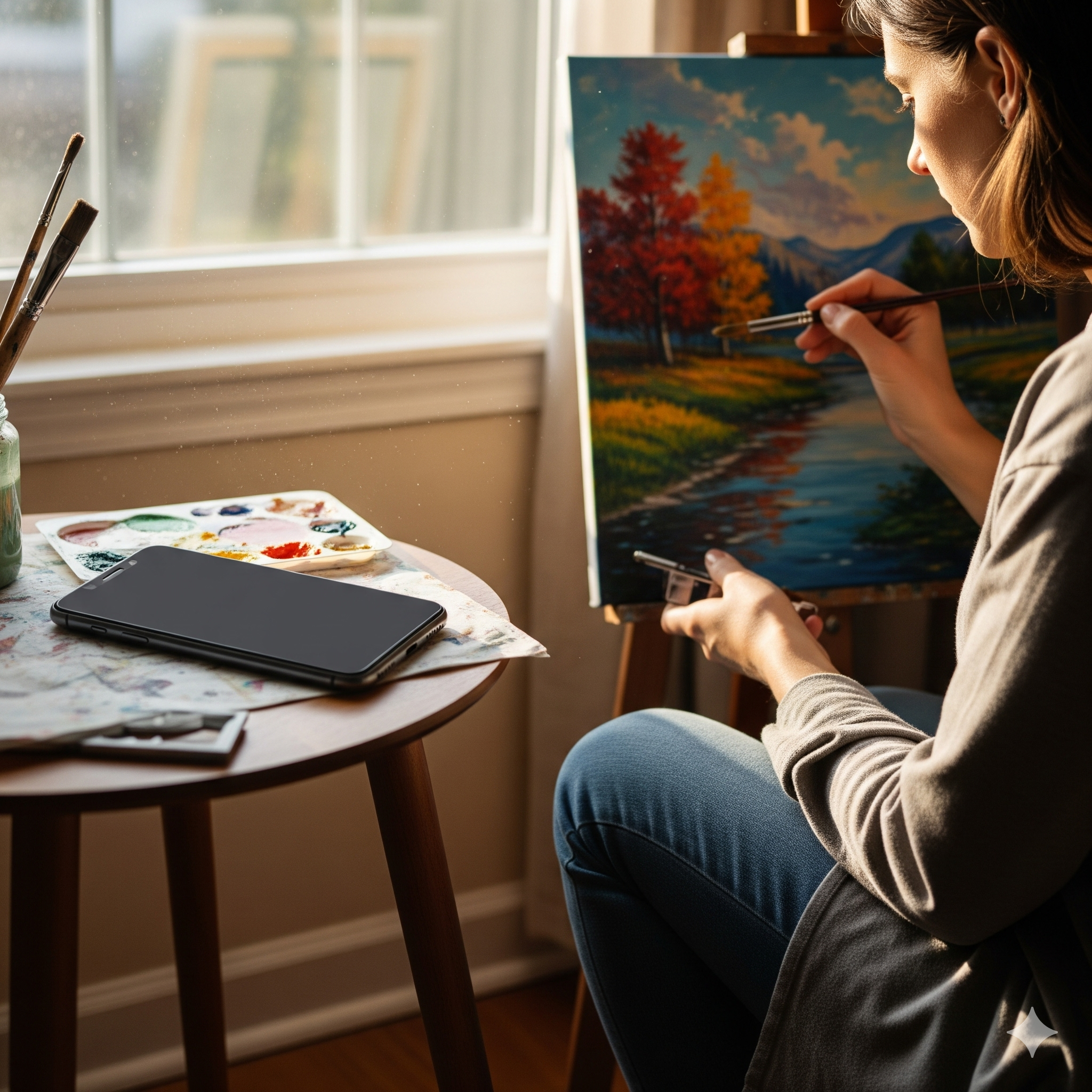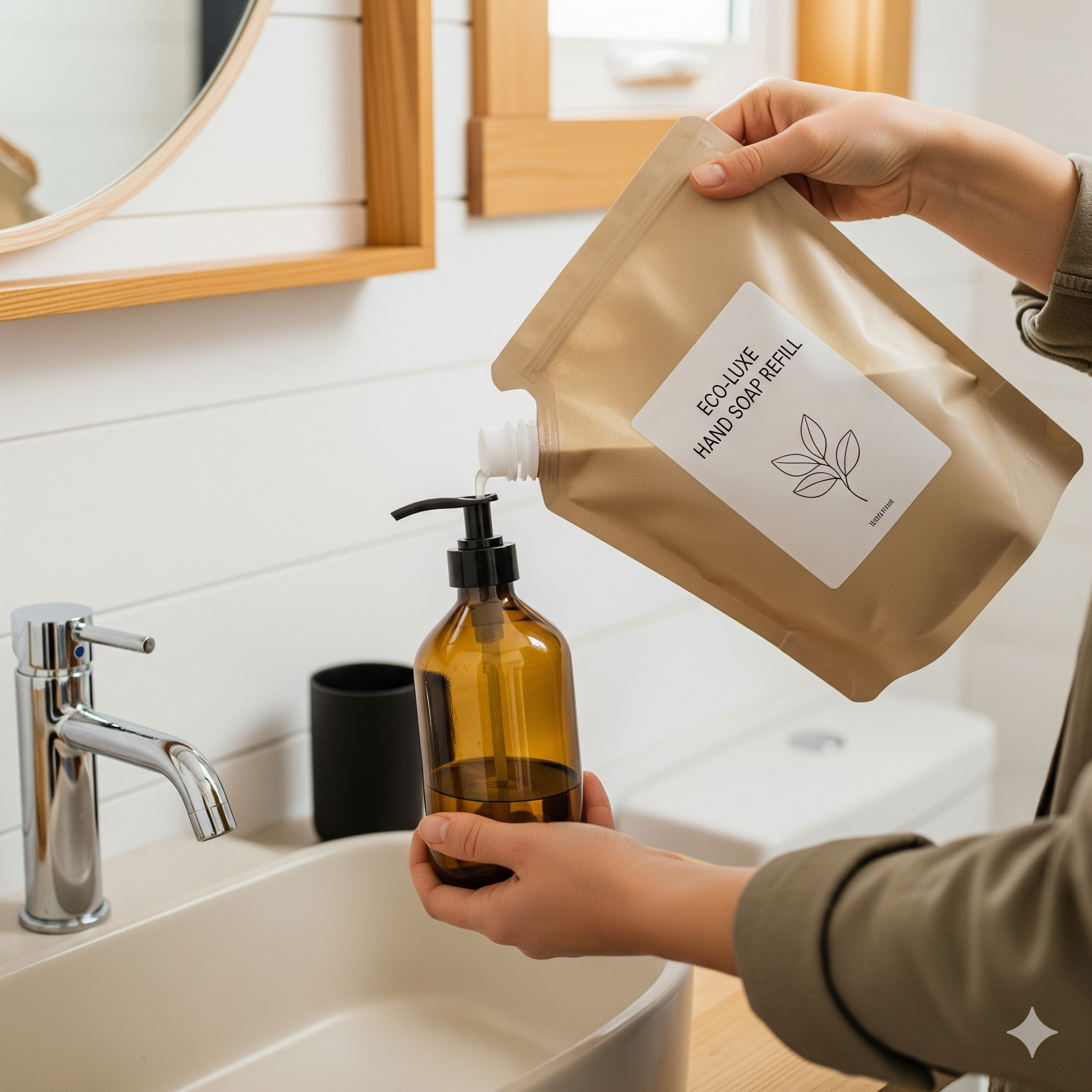How Does Clutter Affect Your Mood and Anxiety?
Discover how does clutter affect your mood and anxiety and learn the mental health benefits of a tidy home. A guide to the psychology of tidying.
The Sanctuary Effect: Unpacking the Mental Health Benefits of a Tidy Home
Our homes are supposed to be our sanctuaries—a place to retreat from the chaos of the outside world, to rest, recharge, and feel at peace. But what happens when the chaos is inside our homes? As a passionate advocate for intentional living and the creator of Neat Tiny Home, I’ve learned that the state of our physical environment is a direct reflection of our internal state, and it works the other way around, too. A cluttered, disorganized home can create a constant, low-grade hum of stress that we might not even be consciously aware of. It’s a weight, a distraction, and a barrier to the very peace we seek within our own four walls.
This is your in-depth guide to one of the most powerful but often overlooked aspects of well-being: the profound connection between a tidy space and a calm mind. We are going to explore the critical question: how does clutter affect your mood and anxiety? We’ll look at the scientific and psychological evidence behind this link and unpack the fascinating psychology of tidying. This isn’t just about making your home look nice for guests. This is about understanding the “clear space, clear mind” phenomenon and using the physical act of decluttering as a powerful tool for improving your mental health. My goal is to show you that creating an organized home is not another chore on your to-do list; it’s a radical act of self-care.
The Undeniable Link: How Our Environment Shapes Our Inner World
The idea that our surroundings affect us is intuitive, but the scientific evidence is also compelling. Researchers have found direct correlations between the state of our homes and our mental and emotional health. A cluttered environment is not just a collection of objects; it’s a collection of postponed decisions and unfinished business. Every pile of mail, every stack of unread books, every closet full of ill-fitting clothes sends a subtle signal to our brains: “Work is not done. You are not in control.” This constant stream of stimuli can be mentally exhausting and can trigger a physiological stress response in our bodies, whether we realize it or not.
The Cortisol Connection: Scientific Research on Clutter and Stress
One of the most significant studies in this area was conducted by researchers at UCLA’s Center on Everyday Lives of Families (CELF). Their book, “Life at Home in the Twenty-First Century,” revealed a direct link between the density of household objects and the level of the stress hormone, cortisol, in female homeowners. The more stuff in a woman’s home, the higher her levels of cortisol. This is a profound finding. It means that the clutter in your home can be having the same physiological effect on your body as a high-stress job or a difficult relationship. It keeps your body in a state of low-grade “fight or flight,” which can lead to chronic fatigue, irritability, and a weakened immune system. This research gives a powerful, scientific answer to the question of how does clutter affect your mood and anxiety.
Why This is Magnified in a Tiny Home or Small Apartment
In a small space, the impact of clutter is magnified tenfold. There is simply nowhere for it to hide. A small pile of clutter that might go unnoticed in a large suburban home can completely take over a tiny living room. In a tiny home, every object must justify its existence because space is the ultimate premium. This constraint can be a blessing, as it forces a level of intentionality that naturally keeps clutter at bay. However, when clutter does creep in, it can make a small space feel oppressive and claustrophobic very quickly, making the need for a tidy, organized environment even more critical for mental well-being.
How Does Clutter Affect Your Mood and Anxiety? A Deeper Look
The impact of clutter goes beyond just a general feeling of stress. It can manifest in several specific ways that directly affect our daily mood and contribute to feelings of anxiety and even depression. Understanding these specific mechanisms can help us identify how our environment might be working against us and provide the motivation we need to make a change.
The Cognitive Overload: How Clutter Steals Your Focus and Energy
As confirmed by a study from the Princeton University Neuroscience Institute, a cluttered and disorganized environment is a distracting one. Our brains are wired to process the information in our field of vision. When our environment is filled with a multitude of objects that are not relevant to the task at hand, our visual cortex is overstimulated. This creates a kind of “background noise” that our brains must constantly work to filter out, making it much harder to focus and concentrate. This constant filtering process is mentally draining. It can leave you feeling fatigued and unfocused, even if you haven’t done much all day. The answer to “how does clutter affect your mood and anxiety?” often starts with this cognitive drain.
The Guilt and Shame Cycle of an Untidy Space
A messy home can become a source of shame and embarrassment. You might stop inviting friends over, which can lead to social isolation. You may feel a sense of personal failure, thinking, “I should be more organized. What’s wrong with me?” This internal monologue of guilt can be incredibly damaging to your self-esteem. The clutter becomes a physical representation of your perceived shortcomings, creating a negative feedback loop: the clutter makes you feel bad, so you lack the energy to deal with the clutter, which in turn makes you feel worse. This cycle is a significant contributor to anxiety and a low mood.
The “Clear Space, Clear Mind” Phenomenon: The Positive Psychology of Tidying
The good news is that this is a two-way street. If a cluttered space can negatively impact our mental health, then a tidy, organized space can have a profoundly positive impact. The “clear space, clear mind” phenomenon is real, and the benefits go far beyond just a clean house. The act of creating and maintaining an orderly environment can be a powerful therapeutic tool for improving your overall well-being. The psychology of tidying is just as powerful as the psychology of clutter.
| Area of Your Home | Mindful Decluttering Goal | Immediate Mental Benefit |
|---|---|---|
| The Bedroom | Create a pure sanctuary for rest. Remove all work, clutter, and distractions. | Promotes better sleep, reduces pre-sleep anxiety, and creates a peaceful start to the day. |
| The Kitchen | Clear the countertops, leaving only essentials. Organize one cabinet or drawer. | Reduces decision fatigue around cooking and encourages healthier eating habits. |
| The Living Room | Clear all flat surfaces (coffee table, end tables). Designate a home for remotes and magazines. | Creates a calming environment for relaxation and social connection. |
| Your Workspace | Clear your desk of everything not related to your current task. Organize your digital desktop. | Increases focus, enhances creativity, and boosts productivity. |
Reclaiming a Sense of Control in a Chaotic World
The world outside our front door can often feel chaotic and out of our control. Our home, however, is our domain. The act of decluttering and organizing is a powerful way to exercise a sense of agency and control over our immediate environment. When you successfully transform a messy closet into an orderly one, you are sending a powerful message to your subconscious: “I am capable. I can create order from chaos.” This feeling of self-efficacy can then spill over into other areas of your life, giving you the confidence to tackle other challenges. This is a core part of the psychology of tidying.
Tidying as a Meditative, Mindful Practice
The physical act of cleaning and organizing can be a form of active meditation. When you focus on the simple, repetitive task at hand—folding laundry, washing dishes, sorting through a drawer—it can quiet the anxious, chattering part of your brain. It grounds you in the present moment. You are focusing on your senses: the feel of the warm water, the smell of the clean laundry, the visual satisfaction of a neat and tidy stack. This mindful engagement can be incredibly calming and is a wonderful way to practice mindfulness without having to sit on a meditation cushion. For more on mindfulness, I recommend the resources at Mindful.org.
The Process is the Therapy: How the Act of Decluttering Heals
The benefits of an organized home don’t just appear when the work is done; the process itself is deeply therapeutic. Decluttering is not just about moving objects around. It’s an introspective journey that forces you to confront your past, assess your present, and define your future. It’s an opportunity to let go of not just physical baggage, but emotional and mental baggage as well.
Confronting the Past and Creating a Vision for Your Future Self
As you sort through your belongings, you are sorting through your memories and your past selves. You’ll find clothes from a person you no longer are, books from a hobby you no longer pursue, gifts from a relationship that has ended. The act of letting these things go can be a powerful ritual of release. You are thanking your past self and making space for the person you are today and the person you want to become. You stop keeping clothes for a “someday” body and start curating a wardrobe that makes your current body feel amazing. This future-oriented mindset is incredibly empowering. For more on this, I love the perspective of Joshua Becker at Becoming Minimalist.
The connection is undeniable. Our homes are a mirror of our minds. By taking the small, actionable steps to create an orderly, peaceful home, we are simultaneously creating a more orderly, peaceful mind. It is one of the most accessible and powerful forms of self-care available to us.
Frequently Asked Questions (FAQ)
I get so overwhelmed when I try to declutter. Where is the absolute best place to start?
Start with the least emotionally charged and most manageable area you can think of. For most people, this is the bathroom. Start with the medicine cabinet or the drawer under the sink. There are fewer sentimental items here, and the decisions are easier (e.g., “Is this sunscreen expired? Yes. Toss.”). The quick, satisfying win will give you the momentum to tackle a slightly bigger area next, like your linen closet or your kitchen junk drawer.
How do I stay organized when I live with a messy person?
This is a huge challenge. The key is to focus on what you can control. You are responsible for your own belongings and your personal spaces. Lead by example. You can also work together to create organized systems in shared spaces. A designated “clutter basket” for the other person in the living room can be a great compromise—it keeps their mess contained and off the shared surfaces. Open, non-judgmental communication is crucial. For more on the emotional labor of tidying, I recommend the work of experts and writers in publications like Psychology Today.
Can an organized home actually help with diagnosed anxiety or depression?
While a tidy home is absolutely not a cure for clinical anxiety or depression, it can be a powerful supportive tool in a larger mental health strategy. For many, it can help reduce external stressors and create a more calming environment, which can alleviate some symptoms. The sense of accomplishment and control gained from organizing can also be a significant mood booster. However, it should be seen as a complementary practice, not a replacement for professional help from organizations like NAMI (National Alliance on Mental Illness).





Post Comment